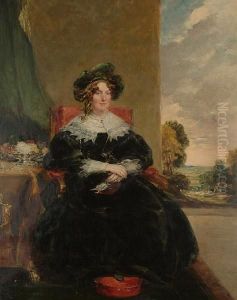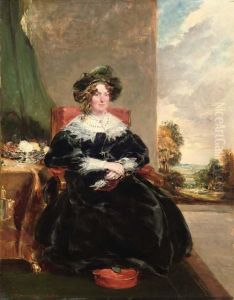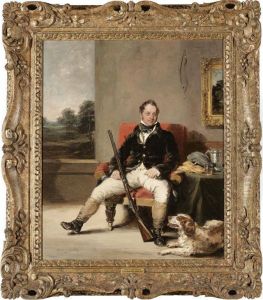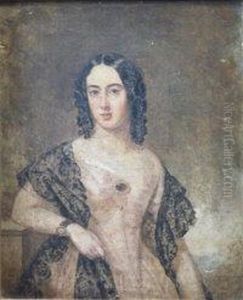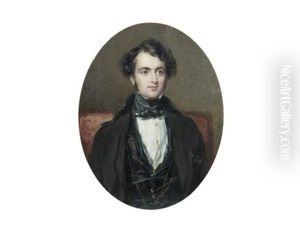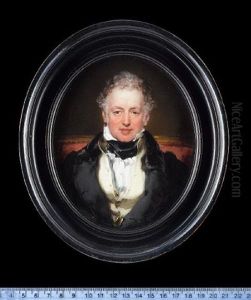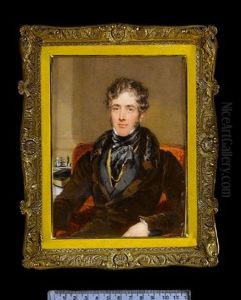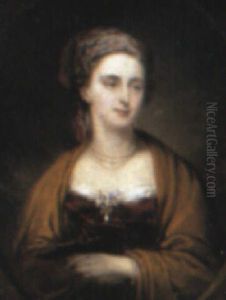Stephen Poyntz Denning Paintings
Stephen Poyntz Denning was an English artist known primarily for his miniatures and portraits, though his body of work also included historical and literary subjects. Born in 1795, Denning's artistic journey began in an era characterized by significant social and artistic shifts. His contributions, albeit less renowned in the broad spectrum of art history, offer a fascinating glimpse into the evolving tastes and artistic explorations of 19th-century Britain. Denning's work reflects the transition from the detailed and intricate styles of the 18th century to the more expressive and individualistic approaches that defined the 19th century.
Denning’s career was notably influenced by the cultural and artistic milieu of London, where he spent most of his professional life. During this period, London was a vibrant center for the arts, attracting artists, writers, and intellectuals. This environment provided Denning with ample opportunities to engage with contemporaries and to be exposed to a wide range of artistic influences. He was particularly known for his portrait miniatures, a genre that was highly popular in England for personal mementos and as symbols of social status. Denning's miniatures were celebrated for their detail, sensitivity, and the ability to capture the personality and essence of his subjects.
Aside from portraits, Denning also dabbled in illustrating historical and literary themes, showing his versatility and keen interest in the narratives of the past. His works in these genres are characterized by a meticulous attention to detail and a strong sense of storytelling, qualities that endeared him to a clientele interested in the romantic and often idealized depictions of historical and literary scenes.
Despite his talent and the quality of his work, Stephen Poyntz Denning did not achieve the same level of fame as some of his contemporaries. However, his contributions to the art of miniature painting and his explorations in other subjects remain valuable for understanding the breadth of artistic exploration during his time. Denning passed away in 1864, leaving behind a legacy that, while not widely celebrated in mainstream art history, is appreciated by those who delve into the nuances of 19th-century British art.
